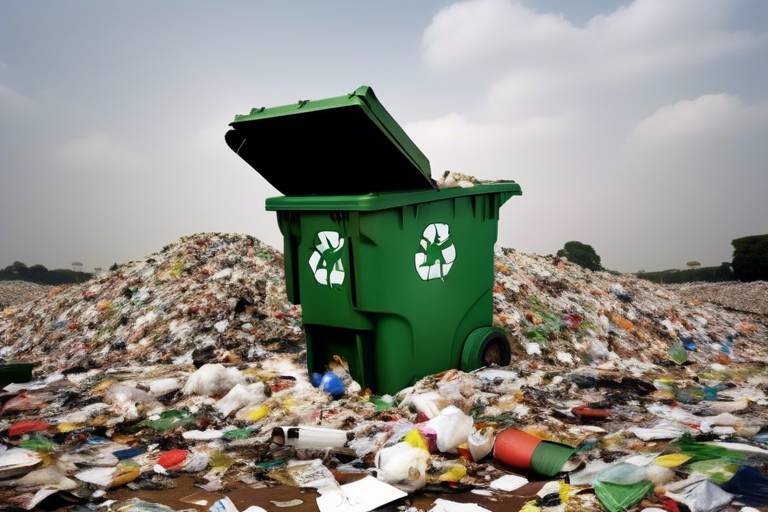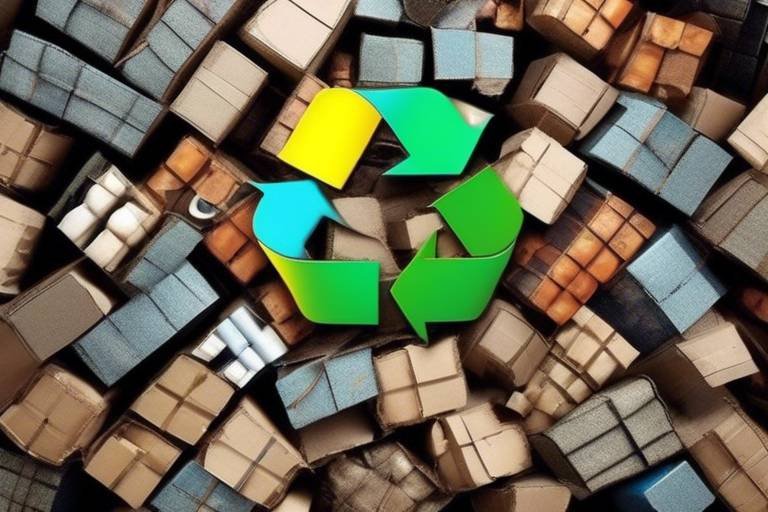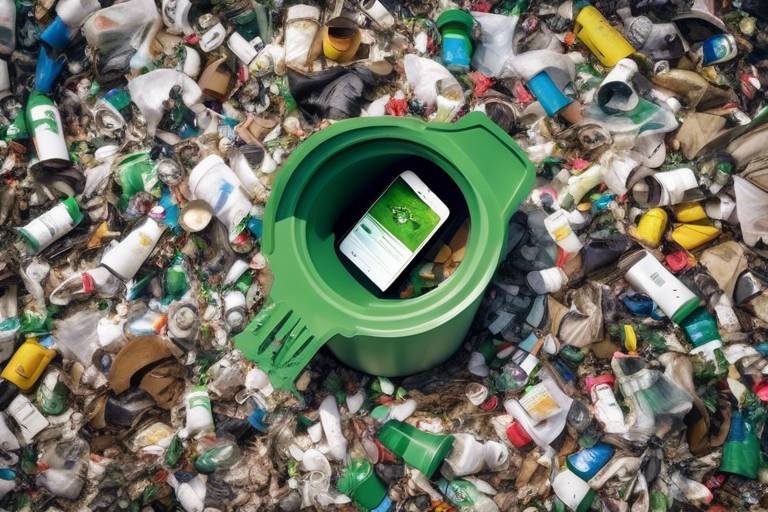What is the Role of Government in Waste Management?
Waste management isn't just about throwing trash in the bin; it’s a complex web of responsibilities that the government must navigate to ensure our planet remains livable. Governments around the world play a pivotal role in managing waste, and their involvement is crucial for promoting sustainable practices. Think of the government as the conductor of an orchestra, where each section must work in harmony to create a beautiful symphony. In this case, the sections are policy development, regulation enforcement, public education, and community engagement. Without the government's guiding hand, the entire system could fall into chaos, leading to environmental degradation and public health issues.
At the heart of effective waste management lies policy development. Governments are tasked with formulating policies that not only set standards for waste reduction but also promote recycling and proper disposal methods. These policies act as a roadmap, guiding communities on how to manage waste responsibly. For instance, when a government establishes a policy that encourages the use of biodegradable materials, it’s essentially planting the seeds for a cleaner environment. This proactive approach not only protects public health but also safeguards the environment for future generations. It’s like building a strong foundation before constructing a house; without it, everything could come crumbling down.
Once policies are in place, the next step is regulation and enforcement. This is where the rubber meets the road. Governments establish regulatory frameworks to ensure compliance with waste management laws. Think of regulations as the rules of a game; they define how waste should be handled and disposed of. But what happens if players don't follow the rules? That's where enforcement comes into play. Government agencies are responsible for monitoring compliance and holding individuals and businesses accountable for their waste disposal practices. This accountability is vital, as it helps to deter irresponsible actions that could harm our environment.
One of the critical functions of government in waste management is licensing waste management facilities. This ensures that these facilities meet safety and environmental standards, which is crucial for preventing pollution and health hazards. Imagine a world where anyone could operate a waste facility without oversight; it would be a recipe for disaster! By licensing these facilities, governments can monitor their operations and ensure they are not causing harm to the community or the environment.
Regular inspections are a key component of this regulatory framework. Government agencies conduct these inspections to ensure that waste management facilities adhere to regulations. It’s like a health check-up for the environment; just as you would visit a doctor to ensure your well-being, these inspections help to mitigate risks associated with improper waste handling. If a facility is found to be non-compliant, immediate action can be taken to rectify the situation.
To further reinforce the importance of compliance, governments impose penalties for non-compliance. These penalties serve as a deterrent against irresponsible waste disposal practices. If a business is caught disposing of waste improperly, the fines can be hefty, sending a clear message that such behavior will not be tolerated. This system creates a culture of responsibility and encourages organizations to adhere to waste management regulations.
Another vital role of government in waste management is public education and awareness. Governments engage in campaigns to raise awareness about waste management issues, promoting recycling, composting, and responsible waste disposal. It’s essential for communities to understand the impact of their waste practices; after all, knowledge is power! By educating the public, governments empower individuals to take action and participate in sustainable waste management practices. Picture it as planting a garden; with the right information and resources, communities can flourish and contribute to a healthier planet.
To support these initiatives, governments allocate funding and resources for waste management programs. This includes infrastructure development, community programs, and research on innovative waste reduction technologies. Without proper funding, even the best policies can fall flat. Local governments often receive grants to implement tailored waste management solutions that address specific community needs and challenges. It’s like providing the tools needed for a craftsman to create something beautiful; without them, the vision remains unfulfilled.
Local governments can utilize these grants to implement waste management programs that resonate with their community's unique challenges. This local approach ensures that waste management strategies are relevant and effective, fostering a sense of ownership among residents. When communities feel involved, they are more likely to participate actively in waste reduction efforts.
Additionally, government investment in advanced waste management technologies enhances efficiency in recycling and waste processing. Think of it as upgrading from a flip phone to a smartphone; the capabilities expand dramatically, leading to improved outcomes. By embracing technology, governments can contribute to more sustainable waste management practices, ensuring that we are not only managing waste but also reducing it at the source.
- What is the primary role of government in waste management? The primary role includes policy development, regulation enforcement, public education, and resource allocation.
- How does government ensure compliance with waste management laws? Through regulatory frameworks, inspections, and penalties for non-compliance.
- Why is public education important in waste management? It raises awareness and encourages community participation in sustainable practices.
- What types of funding do governments provide for waste management? Governments provide grants and resources for local initiatives and technology investments.
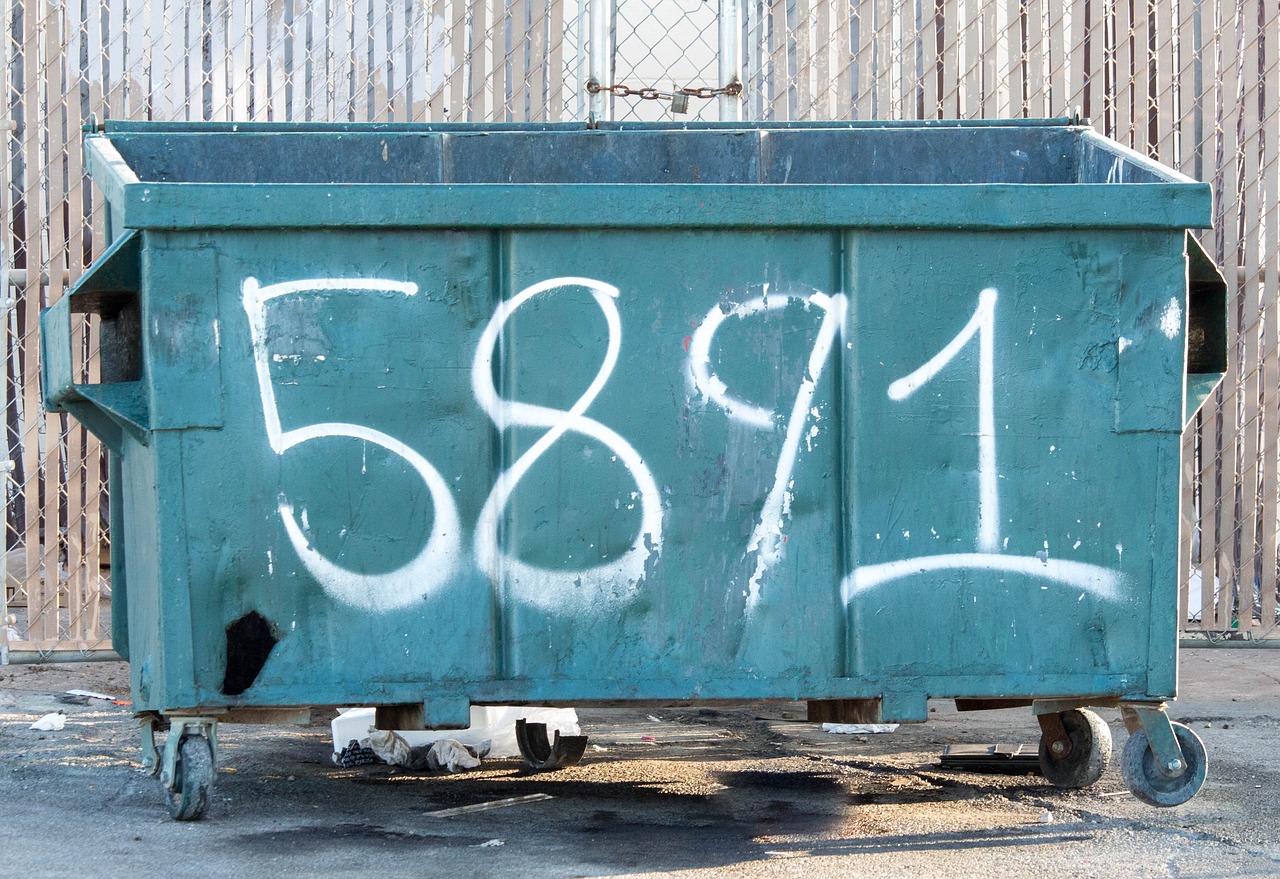
Policy Development
This article explores the various responsibilities and functions of government in managing waste, including policy development, regulation enforcement, public education, and community engagement to ensure sustainable waste management practices.
When it comes to waste management, the government serves as the architect of a well-structured framework that guides how waste is handled, treated, and disposed of. Just like a city planner designs a neighborhood, the government formulates policies that set the tone for waste reduction, recycling, and safe disposal practices. These policies are essential not only for protecting public health but also for preserving our environment. Imagine a world where waste is managed effectively; it would be cleaner, healthier, and more sustainable for everyone.
One of the primary roles of government in policy development is establishing clear standards that businesses and individuals must follow. These standards can include:
- Waste Reduction Goals: Setting ambitious targets for reducing waste generation.
- Recycling Initiatives: Promoting programs that encourage recycling to divert waste from landfills.
- Disposal Regulations: Creating guidelines for safe and environmentally friendly waste disposal methods.
Through comprehensive policies, the government can also encourage innovation in waste management practices. For instance, by offering incentives for businesses that adopt sustainable practices, governments can foster a culture of responsibility and accountability. This is akin to planting seeds of change; with the right support, these seeds can grow into robust programs that benefit the community.
Moreover, the government often collaborates with various stakeholders, including environmental organizations, businesses, and community members, to ensure that the policies reflect a broad spectrum of interests and needs. This collaborative approach is crucial because it helps to create policies that are not only effective but also equitable. When everyone has a voice in the process, the resulting policies are more likely to be accepted and followed.
In summary, the role of government in policy development for waste management is multifaceted and vital. By establishing clear standards, promoting innovation, and engaging with stakeholders, governments can create a sustainable framework that guides waste management practices. This proactive approach not only protects public health and the environment but also fosters a sense of community responsibility towards waste management.
- What are the key objectives of waste management policies?
The key objectives include reducing waste generation, promoting recycling and composting, and ensuring safe disposal methods. - How does government funding support waste management initiatives?
Government funding helps local communities develop infrastructure, implement educational programs, and invest in new technologies for waste management. - Why is public education important in waste management?
Public education raises awareness about waste management issues and encourages community participation, leading to more effective waste reduction practices.

Regulation and Enforcement
The regulation and enforcement of waste management practices are fundamental responsibilities of government entities, ensuring that all waste disposal activities are conducted safely and responsibly. Think of it as a game where the government sets the rules, and everyone—individuals, businesses, and organizations—must play by them. Without these regulations, waste management could become a chaotic free-for-all, leading to severe environmental consequences and public health risks.
Regulatory frameworks are designed to establish clear guidelines on how waste should be managed, from collection to disposal. These frameworks are not just arbitrary rules; they are carefully crafted to protect our communities and the environment. For instance, regulations may dictate the types of materials that can be recycled, the methods for hazardous waste disposal, and the standards for landfill operations. By having these regulations in place, the government ensures that waste management practices align with broader environmental goals, such as reducing landfill use and promoting recycling.
One of the essential aspects of regulation is the licensing of waste management facilities. The government is tasked with ensuring that these facilities meet specific safety and environmental standards before they can operate. This involves a rigorous process where facilities must demonstrate their ability to handle waste without causing harm to the environment or public health. Regular monitoring and inspections follow to ensure compliance, akin to a coach keeping an eye on players during a game to ensure they're following the rules.
Licensing is not just a formality; it is a critical step in ensuring that waste management facilities operate within the law. The government evaluates various factors before issuing licenses, such as:
- Environmental impact assessments
- Safety protocols
- Operational plans
This thorough evaluation process helps prevent pollution and health hazards that could arise from improperly managed waste. Once licensed, these facilities are subject to ongoing oversight to ensure they continue to comply with established standards.
Regular inspections are a crucial part of the enforcement strategy. Government agencies conduct these inspections to verify that waste management facilities are adhering to regulations. Think of inspections as surprise tests in school; they keep everyone on their toes and ensure that standards are maintained. During these inspections, officials check for compliance with operational guidelines, assess equipment conditions, and review waste handling practices. If a facility is found to be non-compliant, immediate corrective actions are required to mitigate any risks.
To reinforce the importance of adhering to waste management regulations, governments impose penalties on those who fail to comply. These penalties serve as a deterrent against irresponsible waste disposal practices. The consequences of non-compliance can vary widely, ranging from fines to the revocation of operating licenses. This system of accountability ensures that all stakeholders take their waste management responsibilities seriously, creating a culture of compliance and environmental stewardship.
In summary, regulation and enforcement are the backbone of effective waste management practices. By developing stringent policies, licensing facilities, conducting inspections, and imposing penalties for non-compliance, the government plays a vital role in safeguarding public health and the environment. These efforts not only promote responsible waste management but also encourage communities to engage in sustainable practices that benefit everyone.
- What are the main responsibilities of the government in waste management?
The government is responsible for policy development, regulation enforcement, public education, and community engagement in waste management. - How does the government ensure compliance with waste management regulations?
Through licensing, regular inspections, and imposing penalties for non-compliance, the government ensures that waste management practices adhere to established standards. - What happens if a waste management facility fails to comply with regulations?
They may face penalties, including fines or revocation of their operating license, to ensure accountability and encourage responsible practices.

Licensing Waste Management Facilities
The government plays a pivotal role in the licensing of waste management facilities, ensuring that these operations adhere to strict safety and environmental standards. This process is not just a bureaucratic formality; it’s a comprehensive assessment that safeguards public health and the environment. Imagine a bustling city where waste is managed haphazardly—what chaos that would breed! By implementing a robust licensing system, the government ensures that only qualified facilities are allowed to operate, thereby minimizing risks associated with improper waste management.
Licensing is a multi-step process that includes evaluating the facility's design, operational plans, and potential environmental impact. Facilities must demonstrate that they have the necessary infrastructure and protocols in place to handle waste responsibly. This can include everything from ensuring adequate waste storage to implementing recycling and composting initiatives. The government also requires that these facilities have contingency plans for emergencies, such as spills or equipment failures, which could pose significant risks to the community.
Once licensed, these facilities are not left to operate unchecked. The government conducts regular monitoring and inspections to ensure compliance with established standards. This ongoing oversight is crucial for maintaining safety and environmental integrity. For example, if a facility is found to be violating regulations, the government has the authority to impose fines, suspend operations, or even revoke licenses altogether. This creates a strong incentive for facilities to adhere to the rules, ensuring that waste is managed in a manner that protects both the public and the planet.
In addition to regulatory compliance, licensed waste management facilities are often required to report on their operations regularly. This transparency helps the government track waste management practices and identify areas for improvement. It also fosters public trust, as community members can see that waste is being handled responsibly. The licensing process, therefore, serves as a foundation for effective waste management, promoting accountability and encouraging facilities to adopt innovative practices that benefit everyone.
| Key Aspects of Licensing | Description |
|---|---|
| Facility Evaluation | Assessment of design, operations, and environmental impact. |
| Safety Standards | Ensuring compliance with safety and environmental regulations. |
| Regular Inspections | Ongoing monitoring to ensure adherence to licensing conditions. |
| Accountability Measures | Fines and penalties for non-compliance to encourage responsible practices. |

Inspections and Compliance Checks
When it comes to waste management, inspections and compliance checks are like the vigilant eyes of the government, ensuring that everything runs smoothly and safely. Imagine a well-oiled machine; each part must function correctly to avoid breakdowns. Similarly, waste management facilities must adhere to strict regulations to prevent environmental disasters and protect public health. Regular inspections are conducted by government agencies to monitor these facilities, checking for compliance with established laws and guidelines. This proactive approach helps identify potential issues before they escalate into serious problems.
During these inspections, various aspects are evaluated, including:
- Operational Procedures: Are the waste management processes being followed as per the regulations?
- Safety Protocols: Are there adequate safety measures in place to protect workers and the community?
- Environmental Impact: Is the facility causing any harm to the surrounding environment?
In essence, these checks serve as a crucial line of defense against improper waste handling. They not only help in maintaining compliance but also foster a culture of accountability among waste management operators. When facilities know they will be inspected regularly, they are more likely to adhere to regulations, ensuring that waste is managed responsibly. This is where the government's role becomes even more significant, as it not only enforces compliance but also educates facility operators about the importance of following waste management laws.
Furthermore, the data collected during these inspections can be invaluable. It provides insights into the effectiveness of current waste management practices and highlights areas that need improvement. By analyzing this information, governments can refine their policies and regulations, making them more effective and relevant to the challenges faced by waste management facilities today.
In conclusion, inspections and compliance checks are essential components of a robust waste management system. They not only ensure that facilities operate within the law but also protect the environment and public health. By maintaining a rigorous inspection regime, governments can help foster a cleaner, safer, and more sustainable future for all.
- What happens if a waste management facility fails an inspection? If a facility fails an inspection, it may face penalties, including fines or even closure, until it rectifies the issues identified.
- How often are inspections conducted? The frequency of inspections can vary based on the facility type and its history of compliance, but many facilities are inspected at least annually.
- Can the public access inspection reports? Yes, many governments make inspection reports available to the public to promote transparency and accountability.
- What role do citizens play in waste management compliance? Citizens can report suspected violations or concerns about waste management practices in their communities, helping to hold facilities accountable.
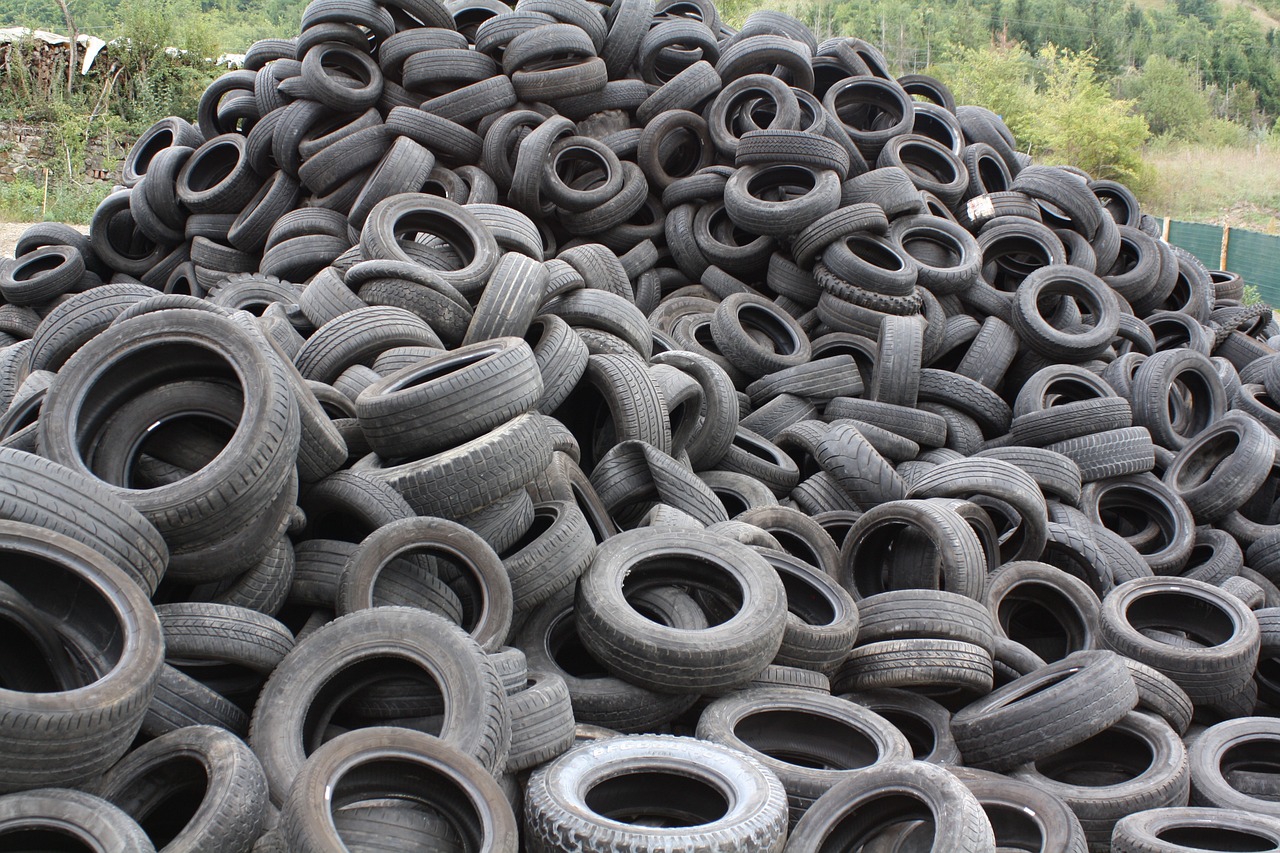
Penalties for Non-Compliance
When it comes to waste management, the stakes are high, and so are the consequences of ignoring regulations. Governments implement a variety of to ensure that individuals and businesses take their waste disposal responsibilities seriously. These penalties serve as both a deterrent and a means of enforcing compliance. Imagine a world where littering and improper waste disposal go unchecked; it would be a chaotic mess, right? That's why penalties are crucial in maintaining order and protecting our environment.
Penalties can take several forms, ranging from fines to criminal charges, depending on the severity of the violation. For instance, a small business that fails to segregate its waste might face a hefty fine, while a corporation caught illegally dumping hazardous materials could face criminal charges and substantial penalties. The severity of the penalty often reflects the potential harm caused to public health and the environment. Here’s a quick breakdown of common penalties:
| Type of Violation | Possible Penalty |
|---|---|
| Improper Waste Disposal | Fines ranging from $500 to $10,000 |
| Illegal Dumping of Hazardous Waste | Criminal charges and fines up to $100,000 |
| Failure to Comply with Recycling Regulations | Fines up to $5,000 |
| Operating Without a License | Fines and potential closure of the facility |
Additionally, the government may impose community service requirements or mandate participation in educational programs about proper waste disposal practices. This not only penalizes the offender but also educates them on the importance of responsible waste management. Think of it as a second chance to do better—an opportunity for growth rather than just punishment.
It's also worth noting that penalties can vary by region, reflecting local laws and regulations. Some communities might adopt a more lenient approach, focusing on education first, while others take a hard stance against non-compliance. This variability can create confusion, but it ultimately underscores the importance of being informed about local waste management laws.
Ultimately, these penalties are not just punitive measures; they are essential tools for fostering a culture of responsibility and accountability in waste management. By imposing penalties on those who fail to comply, governments send a clear message: we all have a role to play in protecting our planet, and ignoring waste management regulations is simply not an option.
- What types of waste management violations can lead to penalties? Violations can include improper waste disposal, illegal dumping, and failure to comply with recycling regulations.
- How are penalties determined? Penalties are typically based on the severity of the violation and the potential harm caused to public health and the environment.
- Can penalties include community service? Yes, some penalties may require offenders to participate in community service or educational programs related to waste management.
- Do penalties vary by location? Yes, penalties can vary by region, reflecting local laws and regulations regarding waste management.
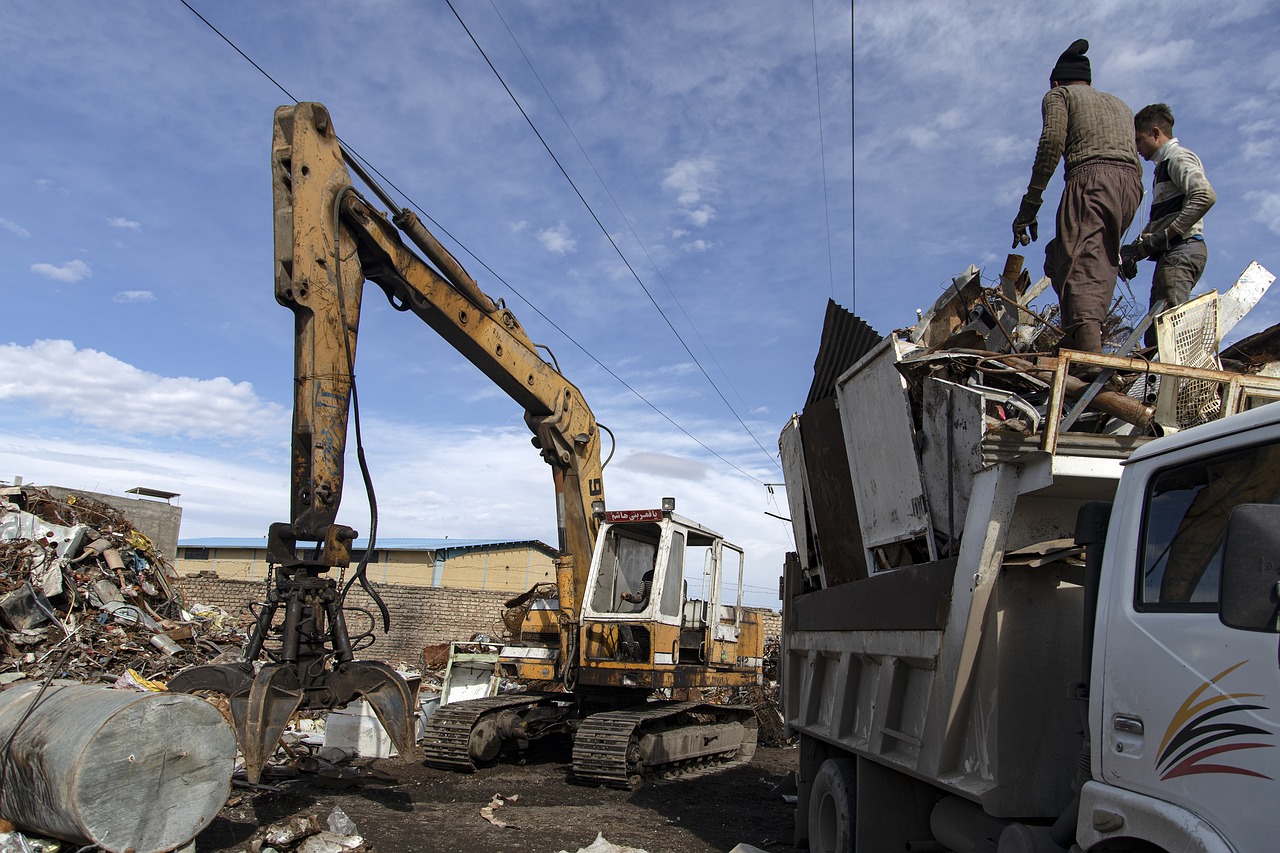
Public Education and Awareness
Public education and awareness are pivotal in shaping effective waste management practices within communities. When the government takes the initiative to inform and educate citizens about the significance of waste management, it lays the groundwork for a culture of sustainability. Imagine a world where every individual understands the impact of their waste disposal choices—this is not just a dream; it can be a reality through robust educational campaigns.
Governments often launch public awareness campaigns that highlight the importance of recycling, composting, and responsible waste disposal. These campaigns utilize various platforms, from social media to local community events, ensuring that the message reaches a diverse audience. For instance, consider the effectiveness of a community event where families come together to learn about recycling through fun activities and workshops. Such hands-on experiences not only educate but also engage community members, making them feel part of the solution.
One of the key aspects of these educational efforts is to dispel common myths surrounding waste management. Many people believe that recycling is too complicated or that their individual efforts won’t make a difference. By providing clear, accessible information, governments can change these perceptions. For example, a simple infographic can illustrate the recycling process, showing how materials are transformed and reused, thus reinforcing the idea that every small action counts.
Moreover, engaging the community in waste management initiatives fosters a sense of responsibility and ownership. When individuals feel connected to their environment, they are more likely to participate actively in sustainability efforts. Programs that encourage schools to adopt recycling practices or community clean-up days can significantly enhance participation. By involving local organizations and influencers, governments can amplify their message and reach more people.
To further support these efforts, governments can provide resources such as educational materials, workshops, and online platforms where citizens can access information about proper waste disposal techniques. Additionally, creating partnerships with local businesses can lead to innovative solutions, such as incentives for customers who bring reusable bags or containers. This not only promotes responsible behavior but also strengthens community ties.
In summary, public education and awareness are the cornerstones of effective waste management. By equipping citizens with the knowledge and tools they need, governments can inspire a collective effort towards a cleaner, more sustainable environment. It’s about creating a ripple effect—where one informed individual can influence their family, friends, and ultimately, the community at large.
- Why is public education important in waste management? Public education raises awareness about waste issues, encourages recycling, and fosters community involvement in sustainable practices.
- How can I get involved in local waste management initiatives? Check with your local government or community organizations for volunteer opportunities, educational workshops, and events focused on waste reduction.
- What are some common myths about recycling? Many people believe recycling is too complicated or that their efforts won't make a difference. Educational campaigns aim to dispel these myths.
- How can businesses support waste management efforts? Businesses can offer incentives for sustainable practices, such as discounts for using reusable containers, and partner with local governments for community clean-up initiatives.

Funding and Resources
This article explores the various responsibilities and functions of government in managing waste, including policy development, regulation enforcement, public education, and community engagement to ensure sustainable waste management practices.
Government plays a crucial role in formulating policies that guide waste management practices, setting standards for waste reduction, recycling, and disposal to protect public health and the environment.
Regulatory frameworks established by the government ensure compliance with waste management laws. Enforcement mechanisms are vital for holding individuals and businesses accountable for their waste disposal practices.
The government is responsible for licensing waste management facilities, ensuring they meet safety and environmental standards, and monitoring their operations to prevent pollution and health hazards.
Regular inspections are conducted by government agencies to ensure that waste management facilities adhere to regulations, helping to mitigate risks associated with improper waste handling.
Governments impose penalties on entities that fail to comply with waste management regulations, serving as a deterrent against irresponsible waste disposal practices.
Governments engage in public education campaigns to raise awareness about waste management issues, promoting recycling, composting, and responsible waste disposal to encourage community participation.
When it comes to effective waste management, are the backbone that supports various initiatives and programs. Governments allocate significant budgets to ensure that waste management systems are not only in place but also functioning efficiently. This funding is crucial for developing infrastructure that can handle waste effectively, such as recycling centers, composting facilities, and waste-to-energy plants. For example, a city might invest in a new recycling plant that utilizes advanced technology to sort and process materials, significantly increasing the recycling rates within the community.
Moreover, local governments often receive grants from federal or state levels to implement tailored waste management solutions. These grants allow communities to address specific challenges they face, such as high levels of organic waste or inadequate recycling facilities. By customizing their approach, local governments can engage residents more effectively, fostering a sense of ownership and responsibility towards waste management.
Investment in technology is another critical aspect of government funding. With the rapid advancement of waste management technologies, governments are increasingly allocating resources to research and implement innovative solutions. This includes investing in systems that enhance the efficiency of recycling processes or developing new methods for waste reduction. As a result, communities benefit from improved waste management practices that not only reduce landfill use but also promote sustainability.
| Type of Funding | Description |
|---|---|
| Federal Grants | Funding from federal government to support local waste management initiatives. |
| State Funding | State-level financial support for regional waste management programs. |
| Public-Private Partnerships | Collaborations between government and private firms to enhance waste management services. |
In summary, the government's role in funding and resources is essential for creating effective waste management systems. By investing in technology, providing grants, and supporting local initiatives, governments can pave the way for sustainable waste management practices that benefit both the environment and the community.
- What types of waste management programs does the government support? Governments support a variety of programs, including recycling, composting, and waste-to-energy initiatives.
- How can communities access government funding for waste management? Communities can apply for grants and funding through state and federal programs designed to enhance local waste management efforts.
- What role does technology play in waste management? Technology improves efficiency in waste processing and recycling, leading to more sustainable practices.

Grants for Local Initiatives
When it comes to waste management, local governments often find themselves on the front lines, tackling issues that directly affect their communities. To empower these local initiatives, governments provide grants that serve as a lifeline for innovative waste management programs. These grants are not just about funding; they represent a commitment to sustainability and community well-being. Imagine a small town struggling with overflowing landfills or a city looking to implement a new recycling program. With the right financial support, these challenges can transform into opportunities for growth and environmental stewardship.
Local governments can apply for these grants to develop tailored solutions that address their specific waste management needs. For instance, a community might use grant funding to launch a composting initiative, which not only reduces the amount of waste sent to landfills but also enriches the soil for local gardens. Alternatively, grants can support educational campaigns aimed at promoting recycling and responsible waste disposal among residents. This dual approach—funding innovative projects while fostering community engagement—creates a powerful synergy that can lead to long-term sustainability.
Moreover, the application process for these grants often encourages collaboration between various stakeholders, including schools, non-profits, and local businesses. By coming together, these groups can pool their resources and ideas, making their proposals even more compelling. For example, a partnership between a local school and a waste management company could yield a program that teaches students about recycling while providing hands-on experience in waste sorting. This not only educates the younger generation but also instills a sense of responsibility towards the environment.
In addition to fostering collaboration, grants can also be used to invest in cutting-edge technologies. Many local governments are exploring advanced waste management technologies, such as smart bins that monitor waste levels and optimize collection routes, or systems that convert waste into energy. These innovations can significantly improve efficiency and reduce the environmental impact of waste management practices. By securing grant funding, local governments can pilot these technologies, gather data, and ultimately decide whether to implement them on a larger scale.
To illustrate the impact of these grants, consider the following table that outlines some successful local initiatives funded by government grants:
| Initiative | Location | Grant Amount | Outcome |
|---|---|---|---|
| Community Composting Program | Springfield | $50,000 | Reduced landfill waste by 30% in one year |
| School Recycling Education | Riverside | $20,000 | Increased student recycling participation by 50% |
| Smart Waste Collection Pilot | Green Valley | $75,000 | Improved collection efficiency by 40% |
As we can see, these grants not only provide essential funding but also pave the way for innovative solutions that can be replicated in other communities. They help local governments become proactive rather than reactive, turning waste management from a burden into an opportunity for positive change. In a world where environmental concerns are more pressing than ever, the role of government in providing grants for local initiatives cannot be overstated—it is a vital step towards a more sustainable future.
- What types of projects can be funded by these grants? Grants can fund a variety of projects, including recycling programs, composting initiatives, and educational campaigns focused on waste reduction.
- How can local governments apply for these grants? Local governments typically need to submit a proposal outlining their project goals, budget, and expected outcomes to the relevant government agency.
- Are there specific eligibility criteria for these grants? Yes, eligibility criteria can vary, but generally, projects must demonstrate a clear benefit to the community and align with broader waste management goals.

Investment in Technology
This article explores the various responsibilities and functions of government in managing waste, including policy development, regulation enforcement, public education, and community engagement to ensure sustainable waste management practices.
Government plays a crucial role in formulating policies that guide waste management practices, setting standards for waste reduction, recycling, and disposal to protect public health and the environment.
Regulatory frameworks established by the government ensure compliance with waste management laws. Enforcement mechanisms are vital for holding individuals and businesses accountable for their waste disposal practices.
The government is responsible for licensing waste management facilities, ensuring they meet safety and environmental standards, and monitoring their operations to prevent pollution and health hazards.
Regular inspections are conducted by government agencies to ensure that waste management facilities adhere to regulations, helping to mitigate risks associated with improper waste handling.
Governments impose penalties on entities that fail to comply with waste management regulations, serving as a deterrent against irresponsible waste disposal practices.
Governments engage in public education campaigns to raise awareness about waste management issues, promoting recycling, composting, and responsible waste disposal to encourage community participation.
Government allocates funding and resources to support waste management initiatives, including infrastructure development, community programs, and research on innovative waste reduction technologies.
Local governments often receive grants to implement waste management programs, allowing them to tailor solutions to their community's specific needs and challenges.
When it comes to waste management, is nothing short of revolutionary. Governments around the world are recognizing that modernizing waste management systems through technology can significantly enhance efficiency and sustainability. By adopting advanced technologies, municipalities can streamline waste collection processes, improve recycling rates, and minimize landfill usage. Imagine a city where waste is sorted automatically, and organic materials are composted on-site, reducing the need for transportation and landfill space. This isn’t just a dream; it’s becoming a reality thanks to innovative technologies.
One of the key areas where technology is making a difference is in the development of smart waste bins equipped with sensors. These bins can monitor their fill levels and communicate with waste collection services, optimizing collection routes and schedules. This not only saves time and fuel but also reduces greenhouse gas emissions associated with waste collection vehicles. Furthermore, data collected from these smart bins can help governments analyze waste generation patterns, leading to better policy decisions and resource allocation.
Another exciting advancement is the use of artificial intelligence (AI) in waste sorting facilities. AI can significantly enhance the accuracy of recycling processes by identifying and separating recyclable materials from general waste. This means fewer recyclable items end up in landfills, which is a win-win for the environment. In addition, governments are investing in biotechnology to develop new methods for waste treatment and recycling, such as converting organic waste into bioenergy, thus generating renewable energy while reducing waste.
To illustrate the impact of technology investments, consider the following table that outlines some key technologies and their benefits:
| Technology | Benefits |
|---|---|
| Smart Waste Bins | Optimizes collection routes, reduces emissions, saves costs |
| AI Sorting Systems | Increases recycling accuracy, reduces landfill waste |
| Biotechnology | Converts waste to energy, promotes sustainable practices |
In conclusion, government investment in technology is not just about keeping up with trends; it’s about paving the way for a sustainable future. By embracing these innovations, governments can not only improve waste management efficiency but also inspire communities to participate in sustainable practices. After all, when we see our governments taking action, it encourages us all to do our part. So, next time you toss something in the bin, think about the technology that might be working behind the scenes to make waste management better for everyone!
- What role does technology play in waste management? Technology enhances efficiency, improves recycling rates, and reduces landfill usage.
- How do smart waste bins work? They are equipped with sensors to monitor fill levels and communicate with collection services.
- What are the benefits of AI in waste management? AI increases the accuracy of recycling processes and reduces the amount of waste sent to landfills.
- How can biotechnology contribute to waste management? It can convert organic waste into bioenergy, promoting renewable energy production.
Frequently Asked Questions
- What is the government's role in waste management?
The government plays a vital role in waste management by developing policies, enforcing regulations, and promoting public awareness. They set the standards for waste reduction, recycling, and safe disposal to protect public health and the environment.
- How does the government enforce waste management regulations?
Governments enforce waste management regulations through a series of compliance checks and inspections. They monitor waste management facilities to ensure they adhere to safety and environmental standards, and they impose penalties on those who fail to comply.
- What are the penalties for improper waste disposal?
Entities that do not comply with waste management regulations can face significant penalties, including fines and sanctions. These measures serve as a deterrent against irresponsible waste disposal and encourage better practices.
- How does the government support public education on waste management?
The government engages in various public education campaigns to raise awareness about waste management issues. These initiatives promote recycling, composting, and responsible waste disposal, encouraging community participation in sustainable practices.
- What funding does the government provide for waste management initiatives?
Government funding supports numerous waste management initiatives, including infrastructure development, community programs, and research into innovative waste reduction technologies. This investment helps to create tailored solutions for local challenges.
- Are there grants available for local waste management projects?
Yes, local governments often receive grants to implement waste management programs. These grants allow them to address their community's specific needs and challenges effectively, fostering sustainable waste management practices.
- What role does technology play in waste management?
Government investment in advanced waste management technologies enhances the efficiency of recycling and waste processing. This not only improves operational effectiveness but also contributes to more sustainable waste management practices across communities.

